Plagued with feeling guilty after eating certain foods? Or maybe when you feel you ate “too much” or caved to the “bad foods”. As mindful and intuitive eating dietitians we’re here to show you how to stop the food guilt and shame and step into food freedom and a healthy relationship with food!
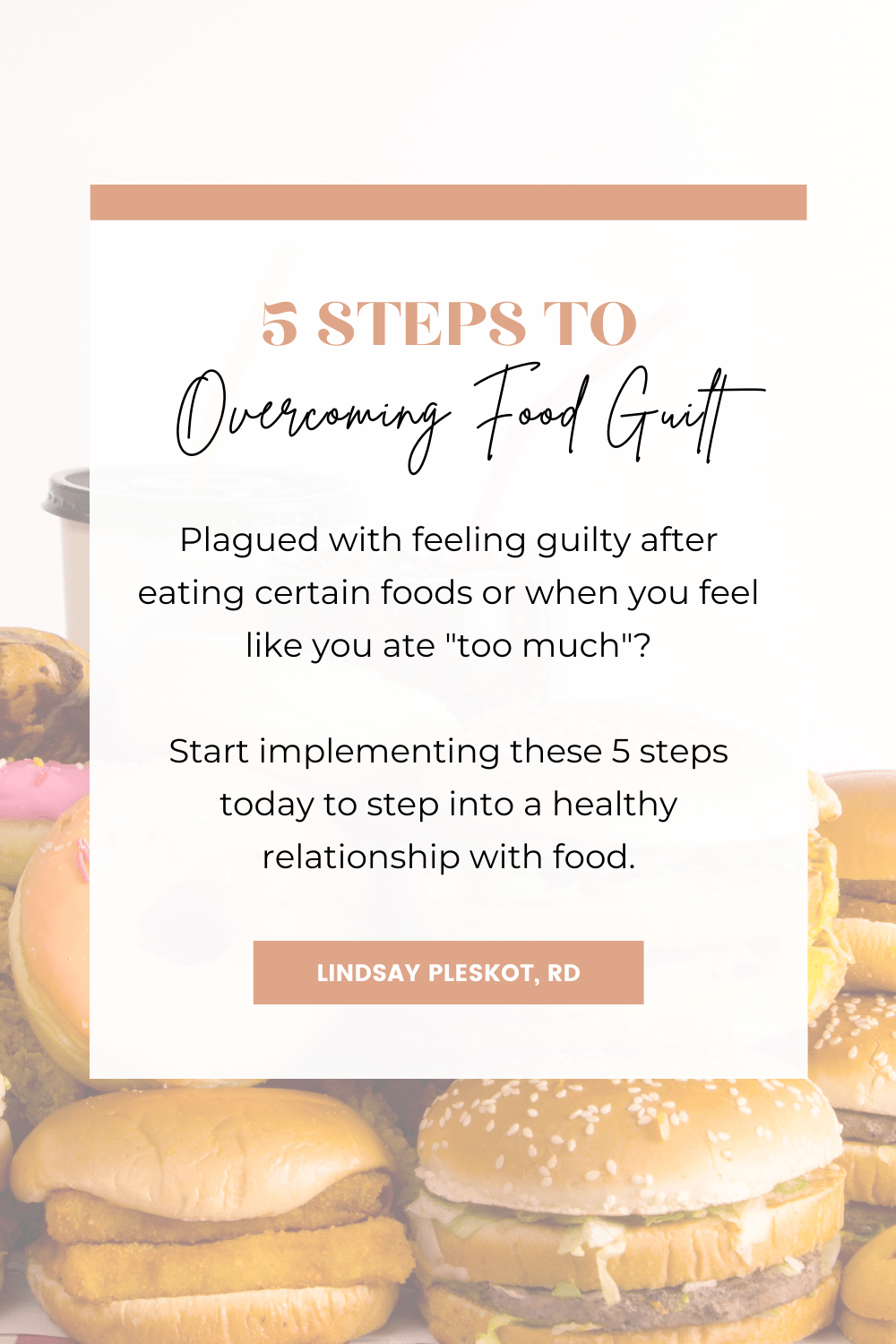
For almost a decade I struggled with such extreme food guilt and shame. It really took over my life. I was constantly thinking about what I should or shouldn’t be eating and would feel especially guilty after eating foods I deemed “bad foods”. I was plagued with thoughts of how I going to “make up for it”.The food guilt would lead to restriction, the restriction would lead to feeling deprived, and then it was only a matter of time before the deprivation led to overeating or bingeing and feeling totally out of control around food. Cue the food guilt, and the cycle would start all over again.
I worried that going into a program so focused around food and nutrition to become a dietitian might make me even more obsessed with food, but in the end it actually led me to where I am today — complete food freedom, no more food guilt or shame, and incredibly grateful to have the honor of being a mindful eating dietitian supporting you to find the same.
In this post I’m sharing five steps to stop feeling guilty after eating and overcome that all consuming food guilt so you can be more present in your life and reconnect to the joy in eating!
What is Guilt?
Guilt is a conditioned emotion (aka it is taught) that we experience when we feel we have done something wrong. It can be a good thing to help us check in at times – if we’ve hurt someone, if we’ve stolen something, if we lied. It can help us check in and correct course. But because it is a learned emotion, we may also have learned to attach guilt where it really doesn’t fit.
Diet culture has become so pervasive that often we don’t even recognize when our thoughts have been hijacked by it, leading to unwarranted food guilt.
Ready to Transform Your Relationship with Food?
Explore not just what you eat but why you eat, how you feel when you eat and any patterns that affect how you feel or impact any choices you make and start your journey to food freedom today!
What is Food Guilt?
Food guilt is the feeling that we’ve done something wrong for eating or not eating certain foods, for eating “too much”, or for other eating habits we may hold.
Start by bringing awareness to when and why you feel guilty, ditch the food rules that aren’t serving you, and practice permission to eat all foods. There’s obviously more to it, read exactly how to that here.
It’s crazy how it’s almost the norm for conversations to revolve around our bodies, our eating habits, or how “good” or “bad” we’ve been with our eating.
We’re changing that right now and I want you to know this…
There are no inherently “good” or “bad” foods and you are definitely not a “good” or “bad” person for the food choices you make. Your morality has absolutely zero to do with the foods you eat.
So how can we break this cycle of feeling guilty after eating and land in a place of food freedom where there is fun and joy in eating again?
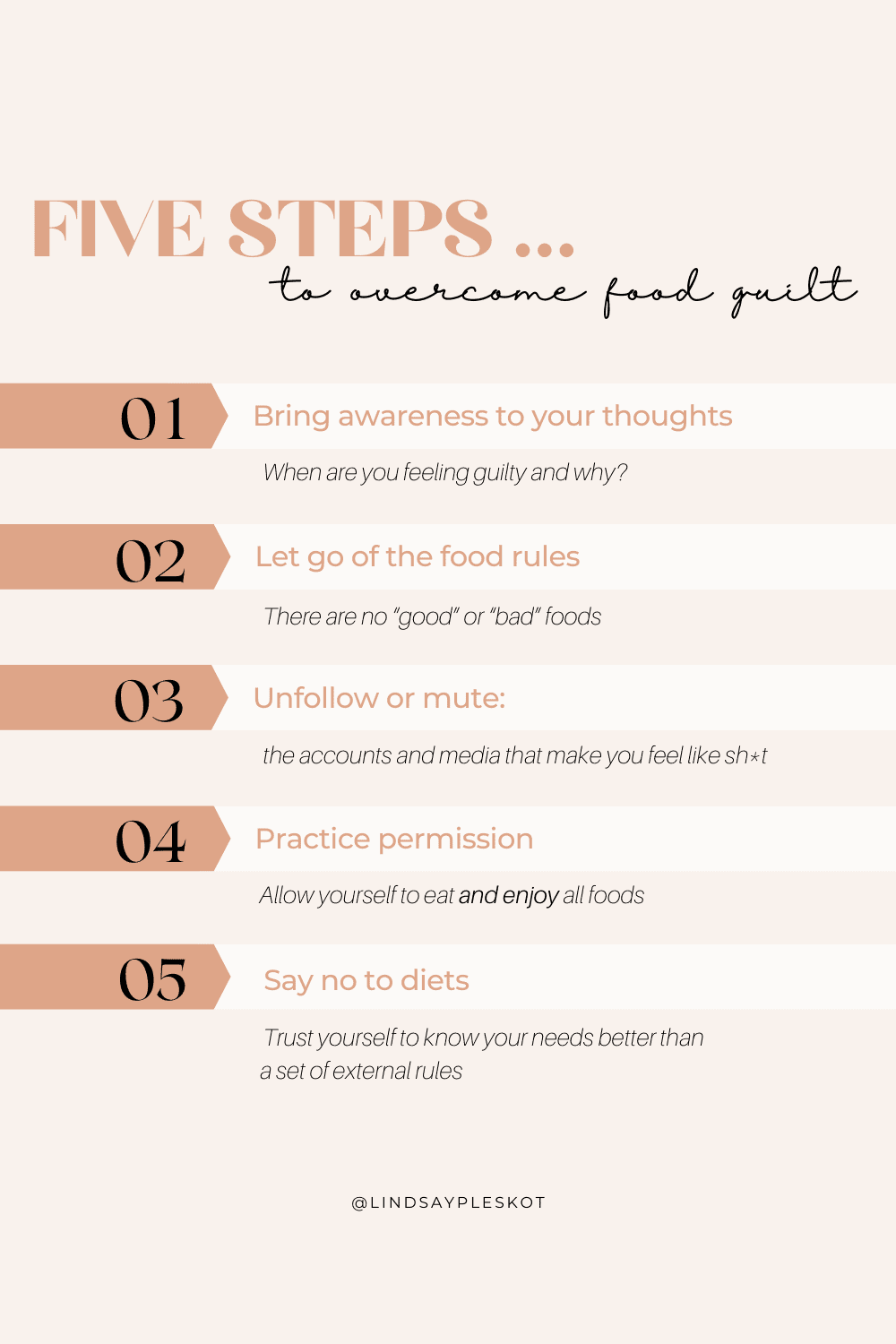
5 Steps to Overcoming Food Guilt
1. Bring Awareness to your Thoughts. When are you Experiencing Food Guilt and Why?
We can’t change what we’re not aware of, so the first step is bringing notice when the guilt comes up. Mindful eating is an incredibly powerful tool for this because it invites awareness without judgement.
Approaching what you’re noticing with curiosity instead of judgement will make the process much less overwhelming and takes the pressure off of getting it ”right”.
The first step really is just about noticing, before taking action or jumping to “fix it”.
The very act of mindful awareness IS action. Allowing yourself the time to explore will allow you to make changes that are intentional, meaningful and impactful for the long run!
Download this free mindful eating food journal to help you get started
2. Let Go of the Food Rules // No “Good” or “Bad” Foods
As you become aware of your thoughts and feelings around food you’ll likely start to notice certain food rules you hold too.
This may look like —
“If I have the ice cream, I’ll just skip breakfast tomorrow”
“I can’t eat after 7pm, that’s a sure way to gain weight!”
“No carbs at dinner!”
“I’ve got to eat it, I paid for it!”
The list goes on. While you journal – take note of any food rules you’re noticing as well. Then — let go of those that are no longer serving you!
3. Unfollow or Mute Accounts and Media that Make you Feel like Sh*t
Where attention goes, energy flows. If you are constantly bombarded with messaging and images that make you feel less than, like you’re not doing the “right things”, or that make you feel your body should look and be a different way…
Unfollow.
Focus your attention on what makes you feel GOOD! And more of that will come.
Ready to Transform Your Relationship with Food?
Explore not just what you eat but why you eat, how you feel when you eat and any patterns that affect how you feel or impact any choices you make and start your journey to food freedom today!
4. Practice Permission to Eat and Enjoy all Foods
This is a big one! You know all those foods that are “off limits”, you know, the ones that bring on the food guilt?
Start giving yourself permission to intentionally eat and enjoy those foods and see how different the experience feels! We want what we can’t have – it’s human psychology 101. So when we tell ourselves we “shouldn’t” eat something, we will likely only think about and crave it more!
When you practice permission to eat these foods, you’ll notice it takes the power away from them! If you know you can have them any time, it makes it easier to say no when you don’t actually want it or have had enough and it will remove the shame you feel in eating it.
You can jot this down in your food journal too – what does it feel like when I feel guilty eating the cake versus when I give myself permission to eat the cake.
5. Say No to Diets
This is a big one.
Macro counting
Keto
“Clean eating”
Same sh*t, different day.
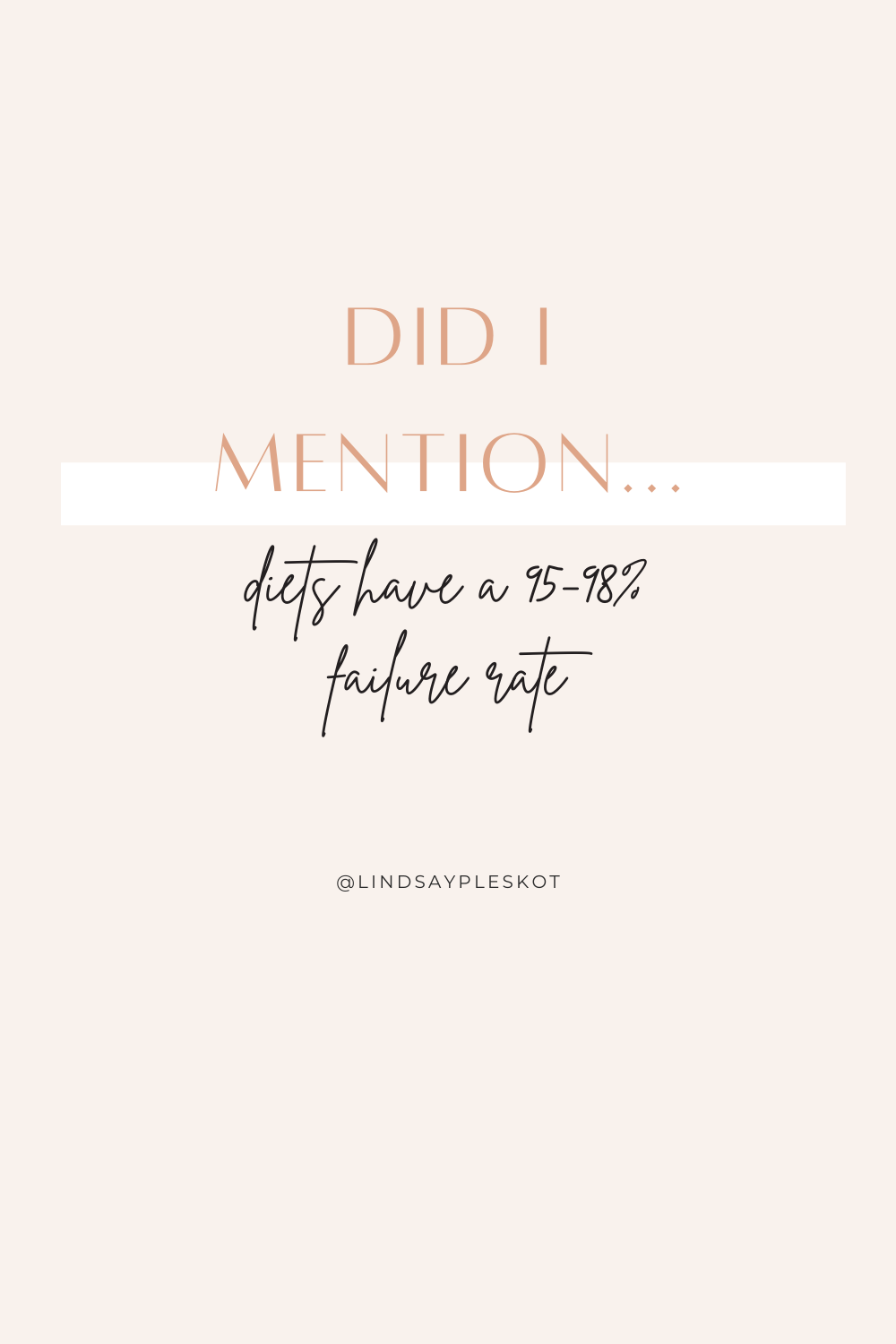
Did I mention..diets have a 95-98% failure rate.
For all the reasons mentioned above — having rigid rules around eating, making foods off limits, following external guidelines to tell you when you’re full and satisfied instead of relying on your own body’s hunger fullness scale or what you actually enjoy and don’t — diets simply aren’t sustainable!
Learning to understand, trust and follow your body’s cues with mindful and intuitive eating and coming back to the basics of eating regular balanced meals (of course with room to enjoy your faves) is the absolute best way to create a healthy, feel good relationship with food and your body for life.
Don’t be afraid to ask for help and find support! Be compassionate with yourself! It can take time to unlearn what you’ve been told for years, maybe even decades! But it is absolutely possible and let me tell you, life is so much better when you no longer feel guilty around food and can use that brain space for the things that fill you up!
Looking for more support?
Looking for support to end the diet cycle, trust your body and learn the nutrition that feels amazing for YOU? Learn more about my Make Food Feel Good Program here where hundreds of women have found lasting success through my proven framework and step-by-step guided support. Let’s Chat!
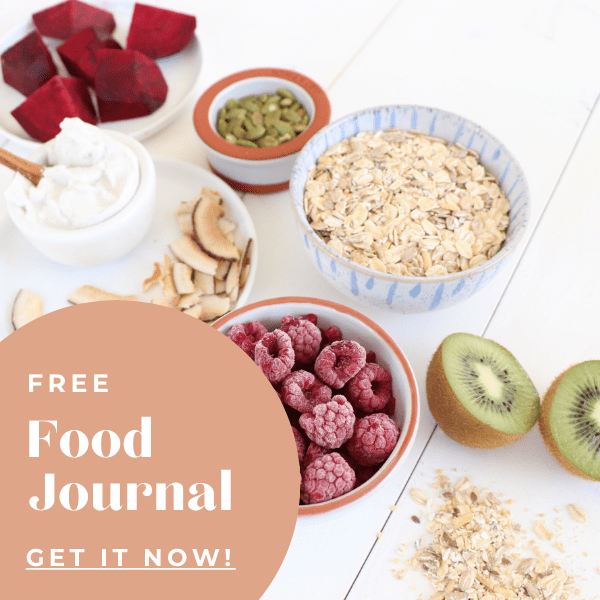
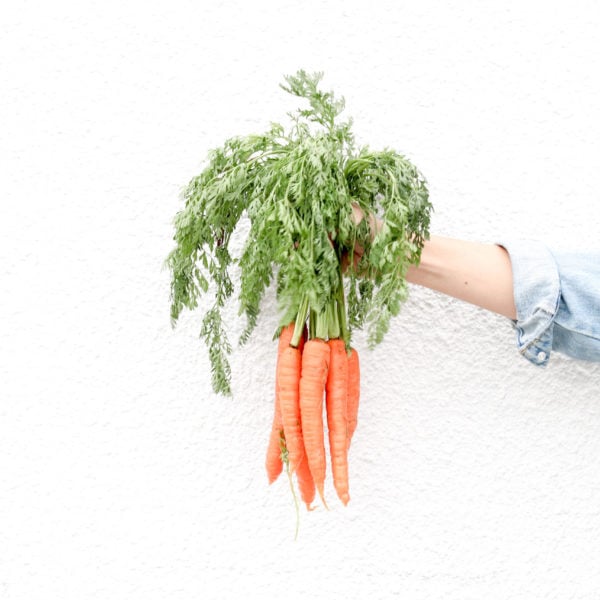

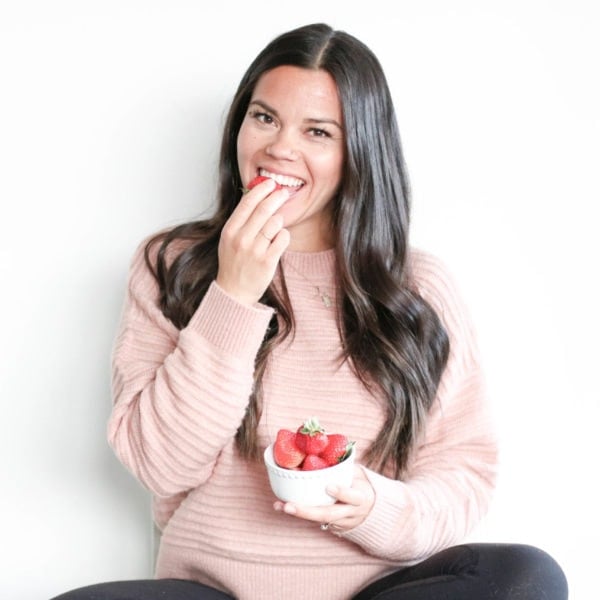

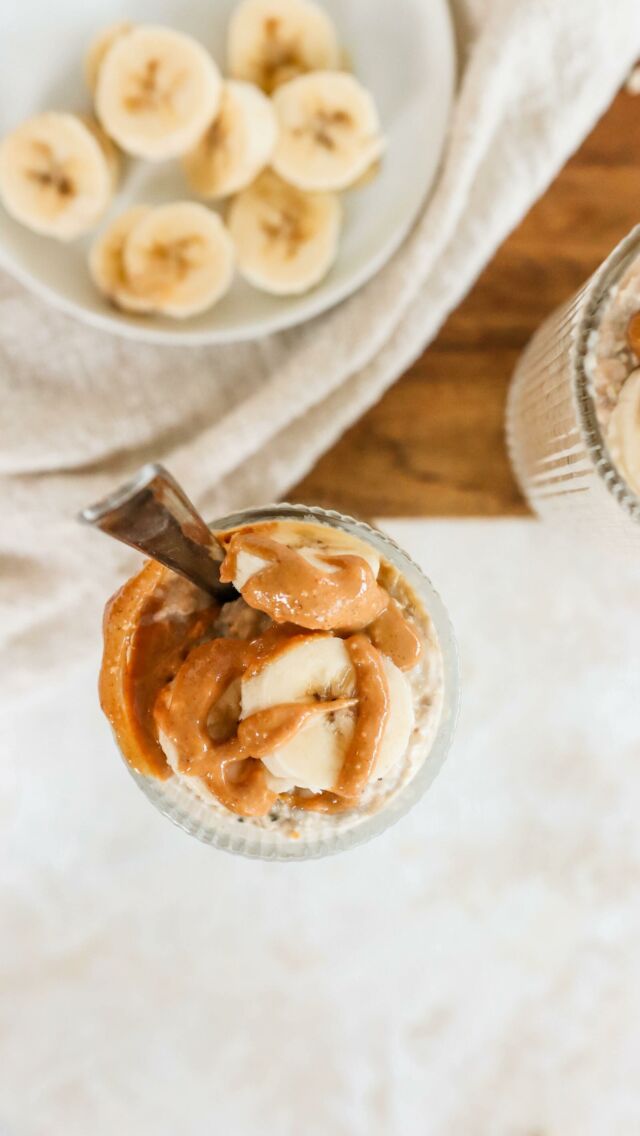
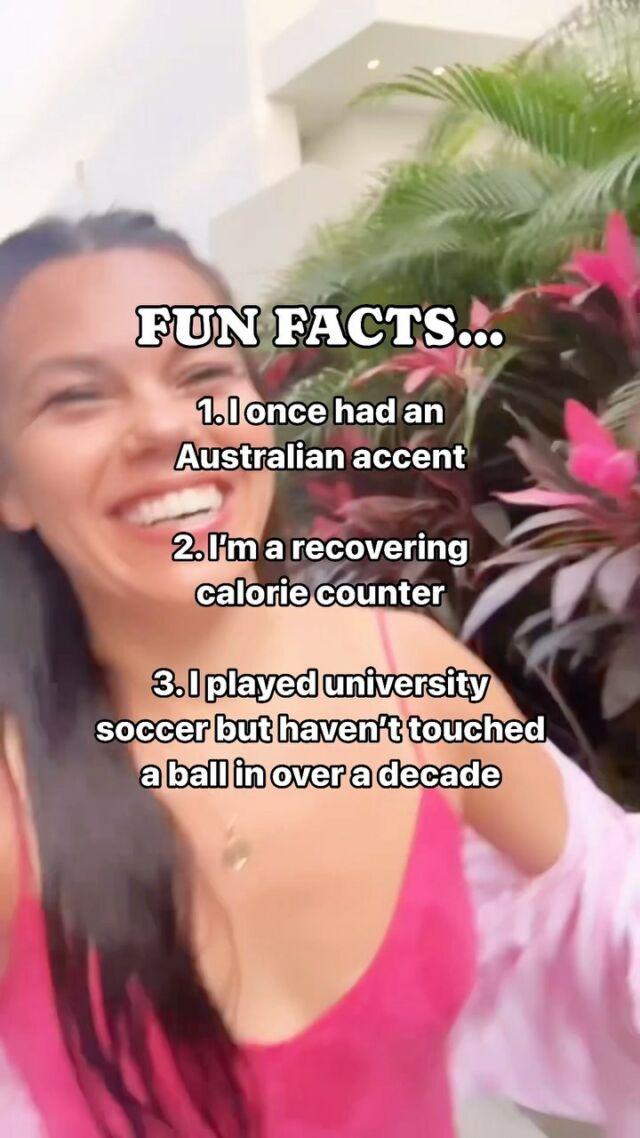
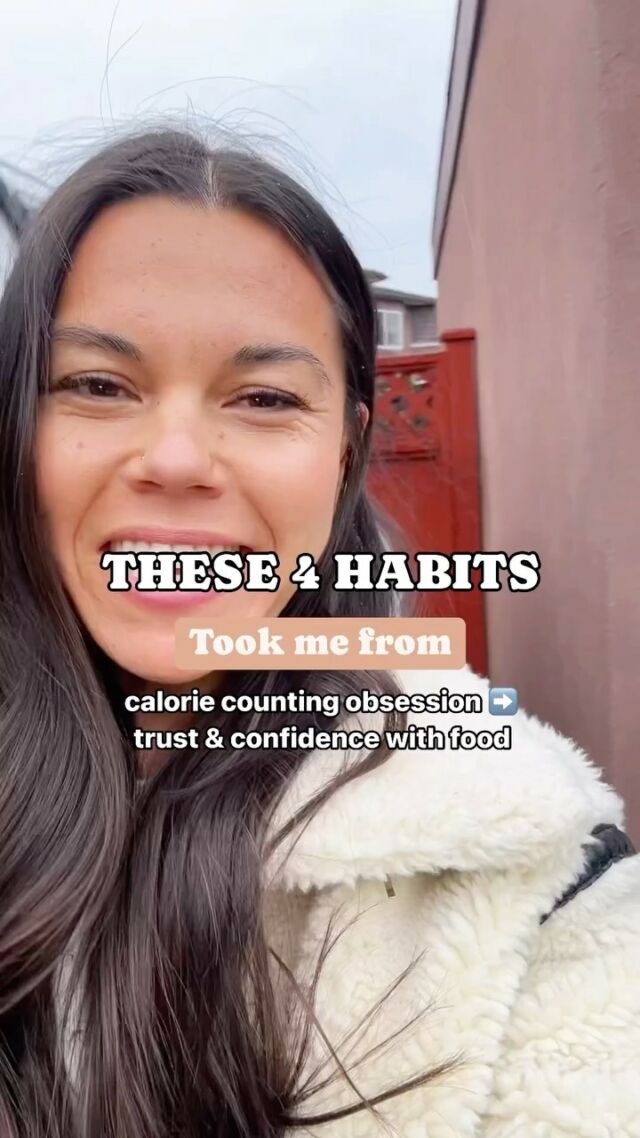
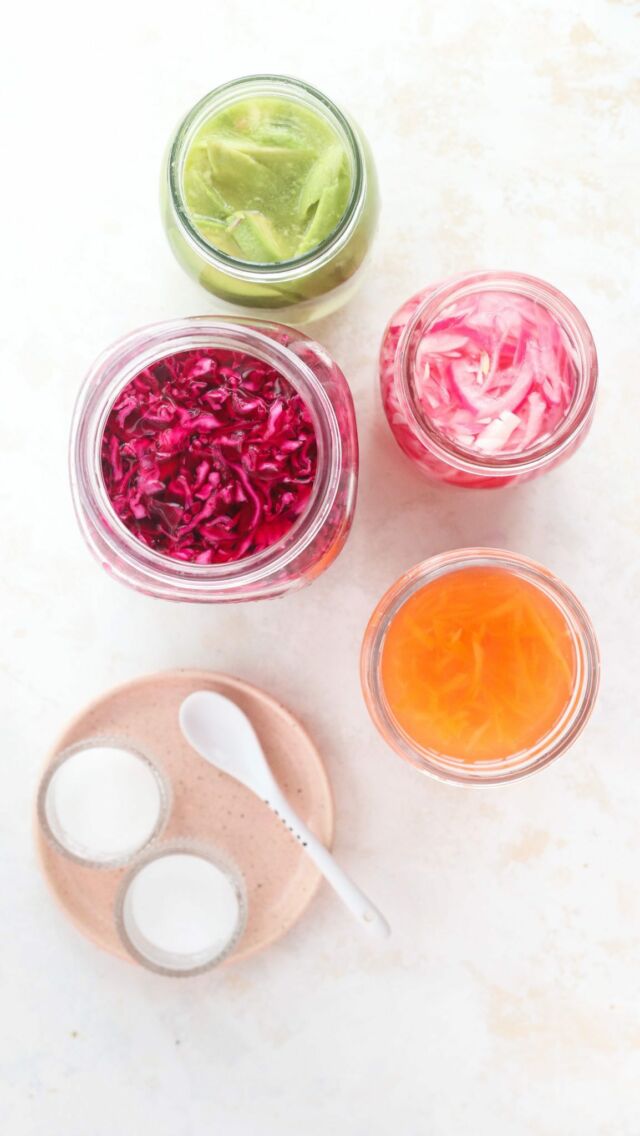
Heidu says
I love give yourself permission & then, let it go! I suspect overtime “you” believe this truth vs the “guilt” voice…
Love it ~ that you Lindsay!
{maybe you have a book idea stirring😉 – making good easy, interesting & guilt free}
Lindsay Pleskot says
You are most welcome Heidi! I’m so happy it resonates! And yes, absolutely! We can actually create new neural pathways so that over time those become our automatic thoughts, which lead to better feelings which leads to empowered and aligned actions , behaviors and eventually new habits! Wohooo! Get that guilt out of here!